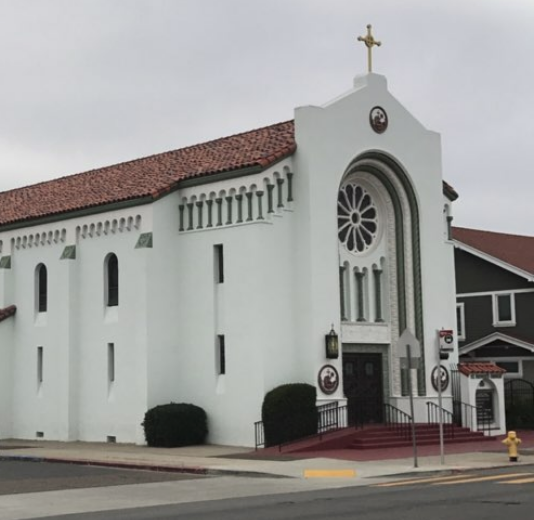Message as Spoken
Reading: Hebrews 5:14-6:1,2; 12:11,12; 2:10; 3:8
It is almost a commonplace with us, that the great feature of the dispensation in which we live is the gathering out from the nations of the members of the Body of Christ, and then the bringing of them on to as full a measure of maturity as is possible. It is not only the salvation of souls, and it is not only the collecting of believers into a spiritual Body. It is afterward, their coming to full growth, which represents the supreme interest and concern of the Lord in this dispensation. I think that is perfectly clear as being a great feature of this time; that maturity is the desire of the Lord for His people; full growth, completeness. Surely this is unmistakable when you read the Word of the Lord along that line. That immaturity is widespread is also, I think, unmistakable. That the Lord is moving in the midst of His own people to bring as many as will go on with Him to fullness, into that fullness, is also a thing which I think is patent. Many questions will arise, but those we must, for the moment, set aside.
We know the widespread immaturity, we know that there are multitudes of saved ones who are the Lord's people living in the shadows of immaturity, who will not pay the price and go on with the Lord, and we might be tempted like one of old to say, "What shall this man do?" And the Lord would say, "What is that to thee?" In other words, "It is not for you to make the immaturity of other people your standard, but what I desire is to be the thing which governs your own thought and occupies you entirely."
So, this being the purpose and will of God, completeness and fullness, we recognize the meaning of all that the Lord is doing. But before touching that more fully may I come back to one or two simple, basic realities, to remind you of these things. That the child of God, the believer, is a new creation. That the believer has an entirely new set of faculties which are spiritual faculties. That man by nature, in his natural state at its best, has no standing whatever in the realm of the things of God. That the believer is not one who has come to change an attitude and become full of Christian interests of which he or she was devoid formerly, and now all other interests, rather than being personal or worldly are Christian interests and activities. That is not the believer. The believer is one who has become possessed of an entirely new set of spiritual faculties and is a new spiritual entity; a different species of being, an entirely different creature, and that these spiritual faculties by which alone the things of God can be known and entered into, have to be developed, have to grow, have to come to a place of spiritual efficiency, just as in the natural child who has its faculties in birth and there has to be steadily a development of those natural faculties.
The faculties of sight, hearing, have to come under control, and every sense of the child has to be developed and brought to as high a state of perfection as possible. Its understanding, observation, and so on. So the believer, being born from above, a new creation, is born with an entirely new and different set of faculties from that with which we came into this world by nature, and it is those spiritual faculties and senses which have to be developed to make us full grown, spiritually efficient in the Lord.
That is very simple and elementary, and yet it is discriminating in a way that many need to have discrimination made, and it is to these saints that the Apostle Paul writes when he says "to those who have their senses exercised," and he says that to these, strong meat is the right kind of provision. He is deploring that after years they are still unable to have strong meat because their senses and faculties have not been developed. If the Lord is really bent upon — as one of His supreme objectives in this age — bringing believers, the saints, to full growth, to spiritual maturity, then He will consider nothing too great a price to reach His end, and that will explain all the mystery of His ways with His children, and all the strange things which happen which sometimes seem to be God working against His own interests, and to us, very often it looks as though the Lord were working against our interests and doing everything quite wrong. But the Lord is prepared to take risks. I am just putting it that way — risks, even with Himself in the mind of poor finite people whose understanding is so limited, and involving Himself in a good deal of misunderstanding, if only thereby He can reach His end.
He dwells in eternity, not in time. He can afford to ignore the misunderstanding of poor man knowing that He has the end in view, and eternity before Him, and that it is worthwhile using a brief moment of time, even though in that moment He may be entirely misunderstood, so long as He reaches an end which is eternal and justifies Him to the hilt. What did the Lord again and again tell His people of old under the hands of their enemies and His enemies? Those against whom He stood, against whom He had taken an attitude which was beyond reconciliation; yet He delivered His people into their hands, and for years His own were under the tyranny of God's own sworn enemies.
Looking at it from one standpoint you would say this is a contradiction, and surely these enemies of the Lord and all others looking on who hated the Lord would say, "You see the Lord could not do what He wanted with them so He has washed His hands of them — the Lord was unable to get His own and so He has abandoned them." That is what Moses brought to the Lord on one occasion. He, the Lord, took that risk. He let the heathen laugh and jeer and look on and sneer at Him and say He has proved a failure, unworthy of trust, while He let His people remain in the hands of the enemies again and again. Jerusalem trodden under foot and every one passing by saying, this is the result of their trust in Jehovah. The Lord reproached by what He did, and yet He considered it worthwhile that all that should be in order to get His ends.
The ways of the Lord are past finding out and they must never be judged according to our human standards; and the Lord allows catastrophe to overtake, but with an end in view, something which when it comes will justify Him up to the hilt, and you will see what we thought was the weakness of God, has proved His strength; the breakdown has proved His supremacy; the foolishness of God has proved His wisdom, so He will be justified in the end. So in this question of growth by exercise you have that whole principle involved. This exercise is not introspective self-analysis. Some people think that when they have turned their eyes inside and become self-conscious, self-analytical, and studied their inside a great deal, circling round their souls, asking questions about themselves — that that is exercise. That is not spiritual exercise. That is what we have said it is — it is all self-consciousness, and all self-consciousness leads to paralysis, bondage, weakness and defeat.
If you look at this word where the exercise is referred to, you will find that this exercise is that which comes upon us in experiences which God produces. "My son, despise not thou the chastening of the Lord, no chastening for the present seemeth to be joyous but grievous, nevertheless, afterward it yieldeth the peaceable fruit of righteousness unto them which are exercised thereby." By what? By the chastening which God takes up with them. God deals with you as with sons if you suffer chastening. As sons He brings you to maturity. The way the Lord handles you; that is the exercise.
The Lord may get you off activities and shut you up to inactivity, and you go through an awful time and say the Lord has forsaken you, all has gone wrong. What really is it? Why, it is growing pains! Has it not proved to be growing pains? In the long run it was not all wrong, it was all right. You came to know the Lord whereas before your whole life was taken up with things. You have been shut up and you came to know the Lord inwardly and you have come to a state of spiritual efficiency which is so much greater that you can now meet the external situation. He has been misunderstood, but He was working unto your efficiency, exercising us unto efficiency. These, the growing pains, are terrible. You cannot help anyone who is suffering from growing pains, and you must stand aside and see them going through.
So through numerous and various directions this growth takes place by the painful exercise produced by the way the Lord is dealing with you. Chastening — a poor English word. It is child-training or discipline. Take the word disciple; one who comes into association with someone in order to learn, and the Disciples were chosen that they might be with Him in order to learn. That is discipline, learning. We do learn through suffering. Even the Lord Jesus was made "full grown" in this sense, complete, through suffering. We take the same way unto full growth. It is child training, discipline, learning by way of experience. That is chastening. Making us sons out of children, full grown men out of infants. I feel that we want to have more faith in the dealings of God with us along this line. It is painful, sometimes anguish. What is the Lord doing? Why is it there is so little space between one thing and another? It does seem that the Lord is pressing to get us quickly to full growth, to get us to the place where we learn something.
The right attitude to take towards every trial which the Lord allows to come upon us, every fresh and difficult thing, is — what is it that the Lord has in view for us to attain to by this experience? It is not to destroy, but to build up. Not to take from, but to increase. Not to restrict, but to enlarge. Down in the deep place is some treasure of the Lord to be discovered. Some of us can say "Yes, we have found it like that." We have gone into deep places, found fullness there and come to know the Lord. Do you see the one thing that is in view in this passage on exercise? "To discern"; it is spiritual intelligence that the Lord has in view. There is a spiritual history going on for some which is the counterpart of that illustrated in the days of the Lord in His flesh. The Disciples with the Lord as their Head are gathered out a little company to Himself. In fellowship to learn. Then He gave to them, conferred upon them official authority, jurisdiction, to go out and exercise His Headship in the creation. To fulfil His government; to administer His government in the world. There you have, in brief, the whole of the meaning of this dispensation. The only real thing was that the Lord was Head, but as for them, everything was merely official, not spiritual. They broke down on that point, but it seems the Lord has set up an illustration of what was to come spiritually afterward — the Church which is His Body — and a spiritual training by discipline, chastisement, to know Him in order that by that maturity and spiritual intelligence He might form for Himself an administrative instrument by which He will govern the universe in the ages to come.
And beloved, the believer is not just a machine that is going to be taken hold of by the Lord and made to do things. People seem to think it is the height of humility to say you are just a cog in the machine. What does it do? A cog goes when everyone else goes, and has to do what the rest do. You are not a cog in a machine. We are chosen individuals to make us individually the centres of His own spiritual intelligence, to know Him for ourselves; not detached from one another, but it does mean we know the Lord, and if we are all governed by the same Spirit we shall not work at variance, we shall work together with one mind if the one Spirit is triumphant in all of us. But He wants His children to be individually the centres of His own spiritual knowledge, spiritual intelligence, and then bringing us together in the one Spirit, working the one work, thinking the one thing, He will get for Himself an instrument to govern the nations in the ages to come: an intelligent instrument which has come to know the Lord's heart by experience.
For that, the faculty of spiritual perception, understanding is necessary. The natural man cannot know these things, only the Spirit discerns. This faculty of spiritual intelligence, spiritual knowledge, the inwardness of everything, has to be developed so that we know the Lord within. Every experience deeper than the last so that we are out of our depth, we have not the resource in ourselves to meet the situation and therefore, in the deep experience, we come to receive the more that is in Christ and having received it by sheer necessity of the situation we have grown that much.
Exercise can produce growth or hardness — the forty years in the wilderness were forty years of exercise. "When they tried me," etc. God brought them under discipline, a regime of child-training, into situations where no human resource could meet the need and everything had to be out from Himself, and a great opportunity of discovering the Lord, and so therefore a greater administration of the Lord in meeting the situation which men could not meet. All that which was intended to develop in their case worked out a hardening. Their attitude was, "these difficulties prove You are cruel and unkind, everything but that You are dealing with us in love." And so they hardened their heart under the exercise that was to prove them. You cannot come into a large place unless you have capacity. We can pass through deep experiences which the Lord allows, and we can take the attitude "This is not kind," "It is cruel of the Lord."
We can take one of two attitudes toward the ways of God with us; we can get bitter, sour, hard; or we can have the enlargement by exercise, development by exercise, to develop capacity, to bring us into the large place that we may be intelligently His instrument for governing under His Headship in ages to come. Things that enter into our history we cannot always fathom, but the explanation which we can give is that, whatever there may be as second causes, the Lord is Sovereign and He thinks it worthwhile sometimes to allow what the world would call the most terrible thing to overtake for the time being, and it would seem that His Name and interests suffer through that thing, but through that thing He brings His people to a place of maturity and they get to know the Lord for themselves. Through these terrible things we find the Lord produces something that is very much more worthy of Himself in the life of His children. That is His justification, His vindication: if He could do it in any other way He would.
In the long run He does get spiritual maturity among His people, where they know Him. He would get us to a place where we know the Lord and we have our senses exercised to know. The Lord give us grace to accept all His dealings with us in the light of His great purpose.
First published in "A Witness and A Testimony" magazine, Mar-Apr 1933, Vol. 11-2
 There are few matters which go to the heart of the Lord's testimony more than the matter of fellowship between the Lord's people, and especially where there is particular responsibility for His testimony. The drive of the enemy and all his subtle and diabolical wit, as well as his pressure and his misrepresentations, will be directed toward destroying that relationship of fellowship. He will seek somehow to divide believers, and get in between. And if you are not careful you will resolve all such matters into merely natural problems and say: Well, it is incompatibility of temper! So-and-so is made this way, and the other person is made that way; you can never blend people who are so different in temperament and outlook! If you allow a conclusion of that kind your testimony is gone; you may as well abandon your position in the Lord and go and scour the world for people who in everything see eye to eye. Does it mean that the Lord's work, as entrusted to two or three or more together in one place, can only continue in so far as these children of His are able at all times to get on with one another on a natural basis? The Lord help His work if that is what is required. We have to look deeper than that.
There are few matters which go to the heart of the Lord's testimony more than the matter of fellowship between the Lord's people, and especially where there is particular responsibility for His testimony. The drive of the enemy and all his subtle and diabolical wit, as well as his pressure and his misrepresentations, will be directed toward destroying that relationship of fellowship. He will seek somehow to divide believers, and get in between. And if you are not careful you will resolve all such matters into merely natural problems and say: Well, it is incompatibility of temper! So-and-so is made this way, and the other person is made that way; you can never blend people who are so different in temperament and outlook! If you allow a conclusion of that kind your testimony is gone; you may as well abandon your position in the Lord and go and scour the world for people who in everything see eye to eye. Does it mean that the Lord's work, as entrusted to two or three or more together in one place, can only continue in so far as these children of His are able at all times to get on with one another on a natural basis? The Lord help His work if that is what is required. We have to look deeper than that.































